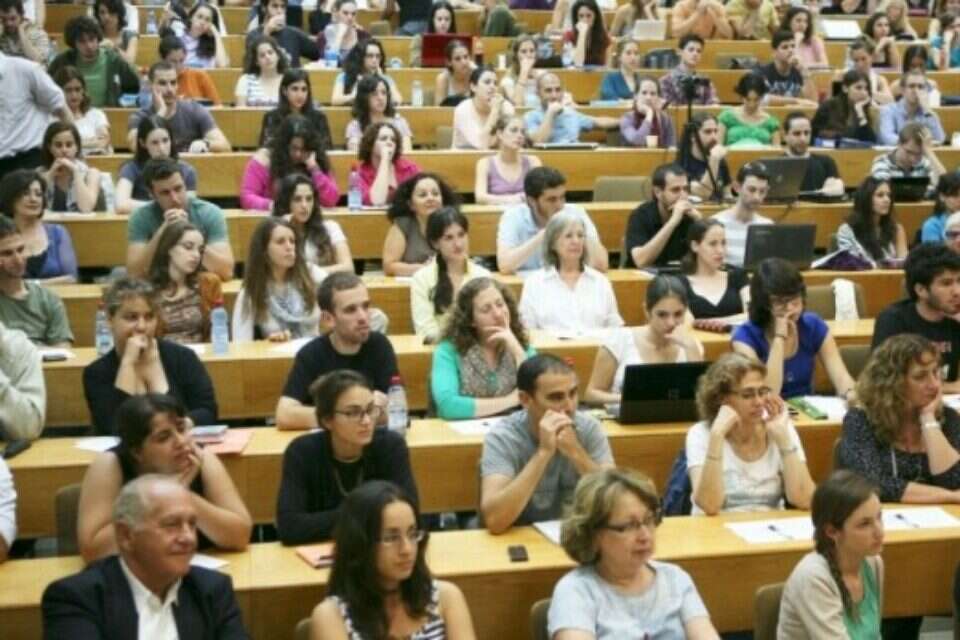You should have heard people speaking at the right-wing demonstration in Jerusalem, lamenting the alienation from academia and other institutions in the country. People speak from the blood of their hearts without any guidance from above, without messages dictated or copied from slogans on signs. People do not find anyone in universities and colleges who will treat their opinions and values with respect and seriousness. And we've heard about this frustration from students as well, and we find it particularly serious. And we've heard that from faculty members, too, and it's particularly embarrassing.
It seems that the demonstrations against the reform, and now in favor of it, are exacerbating the problem of one-sided discourse in the academic field in Israel. There is no doubt that academic freedom is an intrinsic value, and it is zealously guarded, de jure. De facto – there is a delegitimization of different perspectives. The effective slogan "There is no academia without democracy" (inaccurate, there is functioning academia even in non-democratic countries, but it is apparently less effective) embodies the assumption that the proposed changes will bring about the end of democracy, and in any case threatens discourse that supports changes in the judicial system.
The academic world grows out of critical discourse based on different views, and it should be the same in a democracy. This is clear and intuitive, and convincingly presented by contemporary philosophers such as Jürgen Habermas. According to Habermas, a democratic society must be based on discourse that leads to consensual actions, and consent depends on the values of the interlocutors. Here, too, values are often expressed by emotions and nourished by feelings that cannot be denied, so we must also listen to people's feelings and not just verbal arguments. An honest dialogue also leads to connections between the partners in the dialogue, and these ties are the basis for a united society. It is worth stating explicitly what should be obvious: there is no need to agree with other opinions in order to enter into an honest dialogue that allows for agreed-upon action.
But there is no real discourse in academia when it comes to reform. After all, it is unlikely that other official voices are not heard or seen on campus stages, even if their visible numbers are very small. It is unlikely that none of the heads of colleges in the periphery identified with the need for changes in the judicial system publicly and officially, while heads of institutions frequently appear at demonstrations and counter-petitions. Is there really no room for any opinion other than that consensus presented to the general public on every possible platform, under the slogan "There is no academia without democracy"?
Traditional media, unlike social media, for the most part only reinforces the perception among parts of the public that academia as a whole is on one side of the political map, and disconnected from people with other and sometimes opposing views. The media takes an enlarged picture of an existing phenomenon, but also filters out those few but expanding buds of expressing other opinions that arise from faculty and students.
Here's a fresh example: A group of dozens of faculty members from different universities gathered before Thursday's demonstration to talk about a range of views on judicial reform. On a side note, we should mention that against the background of the phenomenon of "Marranos" in academia who fear for their status, these dozens of faculty members represent much more, even if they are a minority. Reporters from media outlets were invited early. They decided to ignore and make the event disappear. Judging by the moving reactions of the audience on the ground, it was clear that the event was of great public interest. The media plays an important role in increasing and weakening the flow of information, but the root of the problem lies in what is happening within academia.
We must shatter, and now, what is perceived by many as disengagement from large parts of the Israeli public, and open up other feelings and thoughts for academic discussion. And we have an opportunity. Students who feel that they are not represented approached us on their own initiative and asked to hold a conference on academia and legal reform. We are waiting to see who will be the first university to agree to hold the conference nearby.
Prof. Asher Cohen, Bar-Ilan University; Prof. Emeritus Dov Thani, Tel Aviv University
Wrong? We'll fix it! If you find a mistake in the article, please share with us

